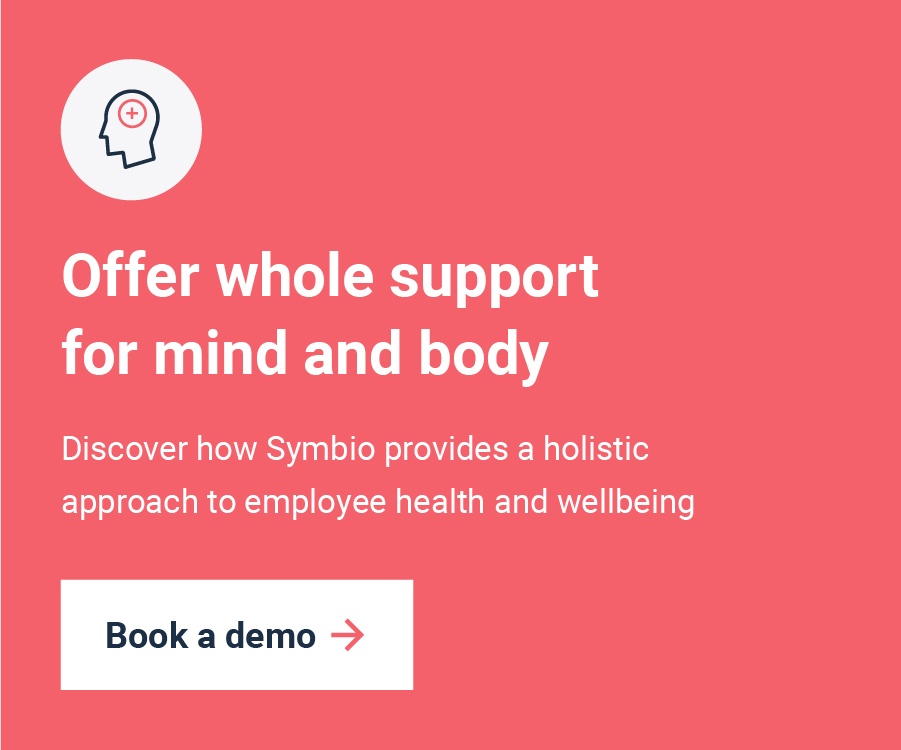This year's Mental Health Awareness Week runs from the 15th to the 21st of May. The core theme is anxiety, and for good reason.
"We've chosen anxiety as the Mental Health Awareness Week theme this year to kickstart a nationwide conversation, encouraging people to share their own experiences and any helpful ideas on how they manage anxiety.” - Alexa Knight, Director of England at Mental Health Foundation.
Anxiety is one of the most common health conditions in the UK. In any given week in England, six in 100 people will be diagnosed with a generalised anxiety disorder. While anxiety isn't always a bad feeling to experience, it can become a problem if it affects your ability to live your life. And your ability to work.
Anxiety in the workplace
In the workplace, stress, anxiety and depression account for most new and long-standing cases of work-related ill health. These mental health conditions account for most of the lost working days. In fact, in the UK alone, there were 17 million missed working days due to stress, anxiety and depression across 2021 and 2022.
Raising awareness of anxiety at work is critical. In doing so, you help people better manage their anxiety. And you support your business’s health and performance. For example, you need to educate employees on the signs and symptoms and offer support and guidance when employees are struggling.
In this blog, we look at how companies can increase awareness of anxiety in the workplace and help prevent it from escalating. Here's what you need to know.
Before we dive in: Why should your company care about employee anxiety?
For employers, failing to address mental health is a costly business. The UK government estimates that “poor mental health costs employers between £33 billion and £42 billion a year.” Anxiety and depression alone cost the UK workforce upwards of £28.3 billion annually.
Putting the financial impact aside, anxiety can have widespread consequences within your organisation. For example:
Anxiety impedes employee engagement
According to a recent survey from the Mental Health Foundation, more than one-third of UK adults feel anxious about their financial circumstances. One in ten feel hopeless about this situation. While financial anxiety is a genuine challenge during the current cost of living crisis, offering pay raises in line with today's high inflation rate might not be feasible.
But the impact that financial wellbeing has on engagement is huge. And if you can't afford to give your employees higher wages, you'll need to find alternative ways to support them. One example could be introducing a health and wellbeing allowance or implementing apps that help them manage their pay or access pay earlier in the month.
To learn more about promoting employee engagement, read these six wellbeing strategy examples to maximise employee engagement.
Anxiety erodes workplace productivity and performance
Some common signs and symptoms of anxiety include:
- Restlessness
- Lost concentration
- Sleep problems
- Panic attacks
- Feeling detached
- Shortness of breath
Because anxiety can encroach on the mind and body like this, it can result in fatigue during working hours. The Centre for Mental Health reports that “anxiety is more likely to lead to presenteeism than absenteeism.”
This means employees are more likely to continue coming to work when they're anxious and unable to perform at their best. Given that presenteeism from mental health conditions costs the UK economy £15.1 billion per annum – compared to absenteeism, which costs £8.4 billion – it's vital your company invests in wellbeing solutions that support anxiety reduction so you can maximise workplace performance.
Anxiety can impact your customer and client satisfaction
On top of employee engagement and productivity, anxiety can impede customer satisfaction. Increased anxiety is directly linked to higher rates of burnout and employee turnover. This could impact your business's ability to fulfil orders, meet expectations and delight customers. Additionally, employees who experience anxiety may struggle with interpersonal interaction. This can quickly lead to communication breakdowns and negative experiences for customers.
How to increase anxiety awareness and help prevent its development
A great way to avoid anxiety at your workplace is to raise awareness. This is precisely what Mental Health Awareness Week aims to do. The more aware your teams are about anxiety, the better they'll become at proactively managing their signs and symptoms before they become a real problem.
Here are a few ways to increase anxiety awareness and help prevent its development.
1. Educate your employees
You can use Mental Health Awareness Week to provide employees with relevant information about managing anxiety. This helps them better recognise when they or their colleagues may be struggling. For example, you can educate them about healthy coping mechanisms and stress-reduction techniques. This can empower individuals to manage their anxiety on their terms and speak up when they need support. As the Mental Health Foundation explains:
“Mental Health Awareness Week is an ideal time for us all to think about mental health, tackle stigma, and find out how we can create a society that prevents mental health problems from developing and protects our mental wellbeing.”
It's important to note that anxiety education doesn't start and end with Mental Health Awareness Week. You can do other things year-round to raise awareness and promote learning. For example, you could:
- Host internal wellbeing workshops: You could theme these on different anxiety-reduction techniques like mindfulness and meditation.
- Put on panel discussions: Bringing in outside experts is a great way to educate teams on the signs and symptoms of anxiety.
- Provide essential reading: Sharing resources about anxiety regularly is a great way to encourage self-education.
However you choose to educate your teams, Mental Health Awareness Week gives you a launchpad for your ongoing commitment to anxiety awareness at work.
2. Foster a culture that encourages open conversations
A big part of managing anxiety is talking about it. And that's precisely the purpose of Mental Health Awareness Week – to get people talking. As an employer, it's up to you to create safe spaces for your employees to speak up when they're dealing with anxiety. This ensures you can offer tailored advice and guidance on seeking help.
While Mental Health Awareness Week provides this opportunity, it's essential to recognise that creating open conversations around anxiety also requires an active investment into the company culture. The event will come and go, but anxiety is ever-present. Ensure your employees feel comfortable sharing their thoughts and concerns about anxiety without fear of judgement or repercussions whenever needed.
A few culture changes you can make that encourage openness include:
- Fostering inclusivity: Create an environment where everyone feels included, respected, and valued, regardless of who they are and what they believe in.
- Offering support: Ensure employees can access the resources and support needed to manage anxiety, such as counselling, employee assistance programs and a holistic wellbeing solution.
- Leading by example: Model open and supportive behaviour and encourage managers and team leaders to do the same.
Open work cultures beget honest conversations. Use Mental Health Awareness Week to help employees feel safe to speak up. This allows you to hear about and minimise individual mental health concerns before they grow into a business concern.
3. Appoint a health and wellbeing champion
The best way to promote Mental Health Awareness Week is to appoint a health and wellbeing champion. This person can act as the go-to person when someone is struggling, offering signposting and reminding people what support is available. They can also lead internal workshops and events.
A dedicated health and wellbeing champion is vital to your ongoing commitment to anxiety in the workplace. Long after Mental Health Awareness Week wraps, this person can continue to work with line managers to help improve how teams are supported. They can also work with senior stakeholders and lobby for more investment in employee wellbeing strategies, diversity and inclusion initiatives, or other solutions that help to reduce anxiety and create a positive work environment.
Most importantly, a dedicated advocate for health and wellbeing helps reduce the anxiety stigma. While progress is being made, mental health stigma at work still exists. A champion can help to change this. According to Kelly Greenwood, founder and CEO of Mind Share Partners, “Normalising mental health is so important – even if someone never talks about their experiences at work, they can still feel accepted and not isolated.”
Finally, provide access to the right professionals
Promoting Mental Health Awareness Week at your workplace requires more than information sharing. To live by what the event stands for also requires access to the right professionals to support employees.
That means allowing employees to quickly and easily access GP services when they need specialist help with their anxiety, for example. It also means offering an Employee Assistance Programme (EAP) that gives employees a personalised health experience and lets them manage their anxiety on their terms.
With this kind of follow-through, you can transform every week into Mental Health Awareness Week and support your employees in showing up to work as the best versions of themselves all the time.






